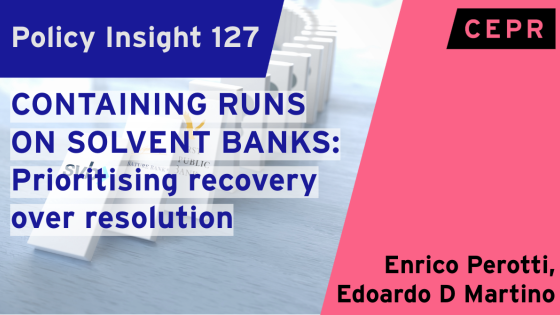DP4383 International Lending of Last Resort and Moral Hazard: A Model of the IMF's Catalytic Finance
The provision of liquidity by international institutions such as the IMF to countries experiencing balance of payment problems could prevent liquidity runs but could also cause moral hazard distortions: expecting to be bailed out by the IMF, debtor countries would have weak incentives to implement good but costly policies, thus raising the probability of a crisis. This Paper presents an analytical framework to study the trade-off between official liquidity provision and debtor moral hazard. In our model international financial crises are caused by the interaction of bad fundamentals, self-fulfilling runs and policies by three classes of optimizing agents: international investors, the local government and the IMF. We show how an international financial institution helps prevent liquidity runs via coordination of agents? expectations, by raising the number of investors willing to lend to the country for any given level of the fundamental; i.e., partial liquidity support can have a catalytic effect on investors. The influence of such an institution is increasing in the size of its interventions and the precision of its information: more liquidity support and better information make agents more willing to roll over their debt and reduce the probability of a crisis. Different from the conventional view stressing debtor moral hazard, we show that official lending may actually strengthen a government incentive to implement desirable but costly policies. By worsening the expected return on these policies, destructive liquidity runs may well discourage governments from undertaking them, unless they can count on contingent liquidity assistance.


